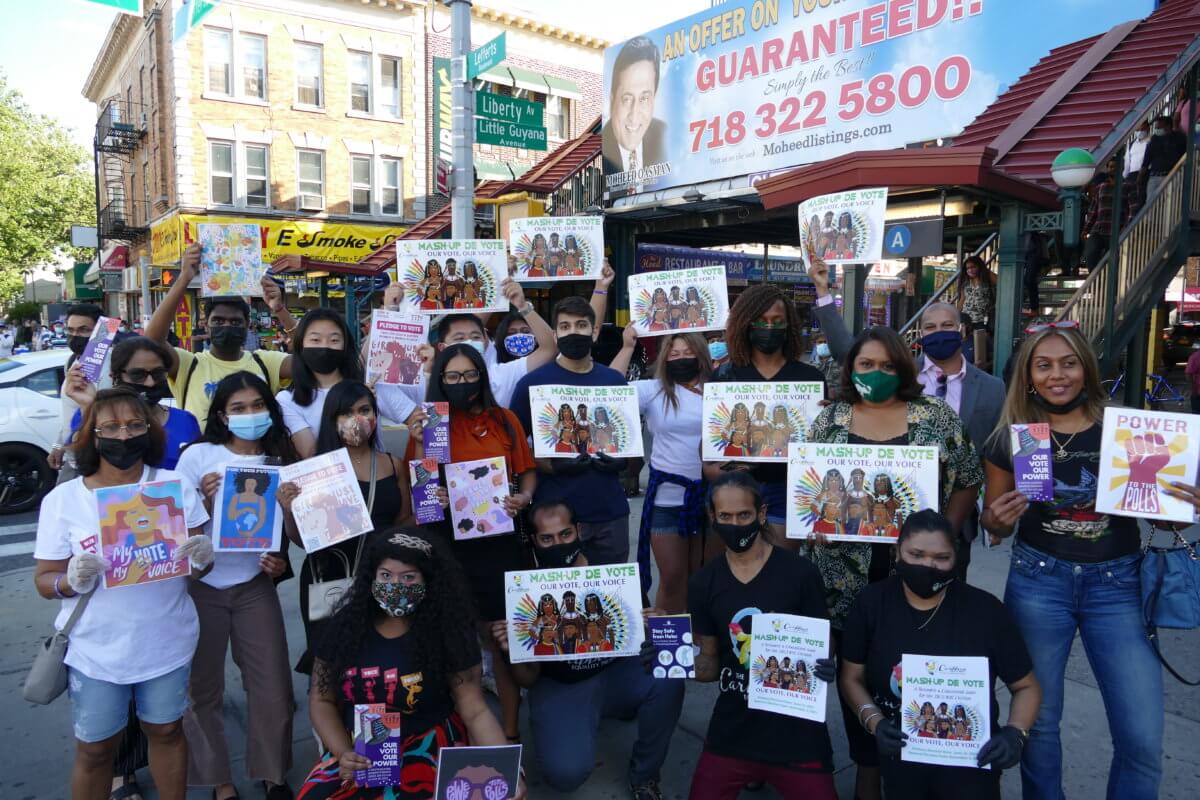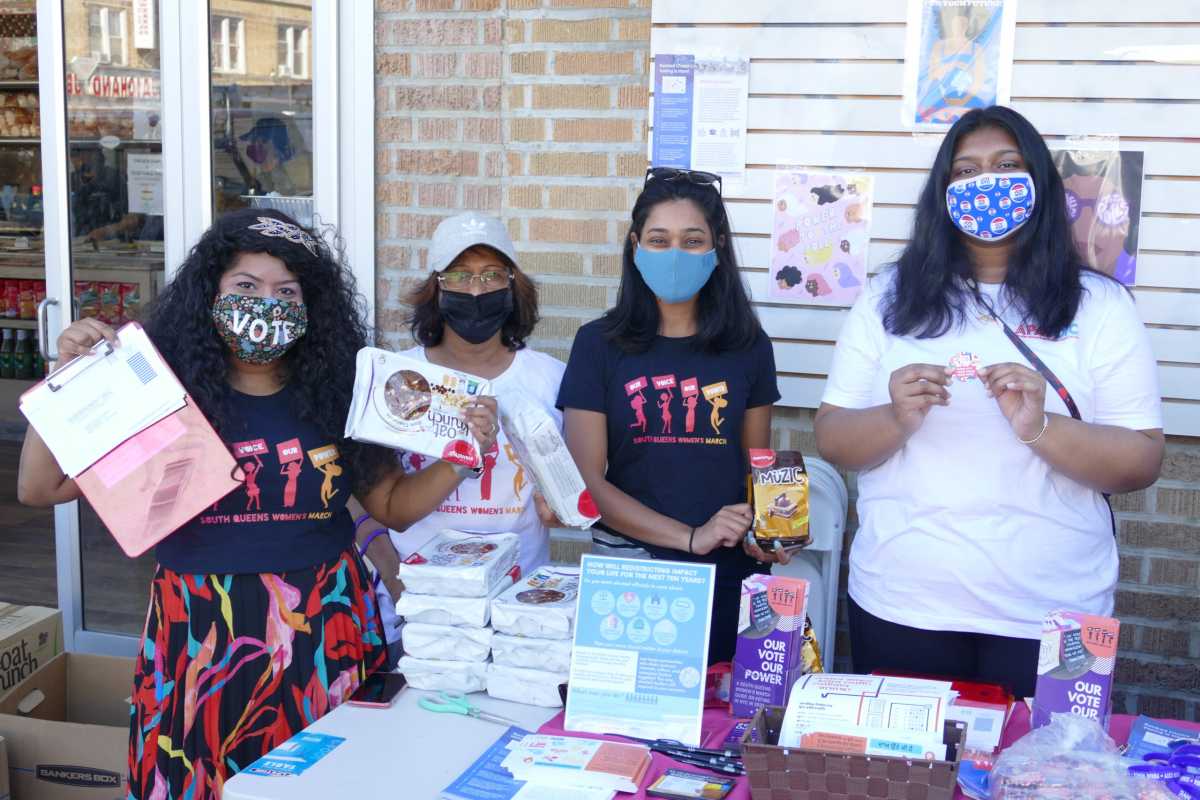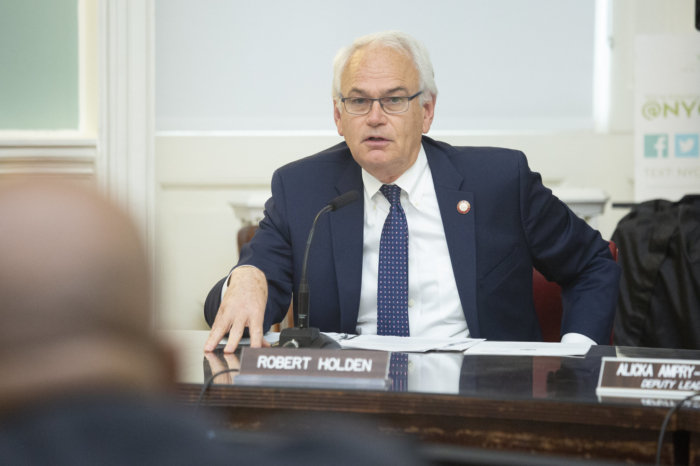Local organizers in Richmond Hill are educating residents about New York City’s new ranked-choice voting system and the importance of exercising their power to vote in the upcoming primary election on June 22.
The Caribbean Equality Project and South Queens Women’s March, in partnership with APA Voice, hosted a “Little Guyana Votes Rally and Outreach” in Richmond Hill on Wednesday, June 16, near Tropical Isle restaurant at 118-19 Liberty Avenue.
The event included tabling, street canvassing, voter registration outreach, PPE distribution, and free giveaways including cultural snacks such as doubles and pine-tarts.
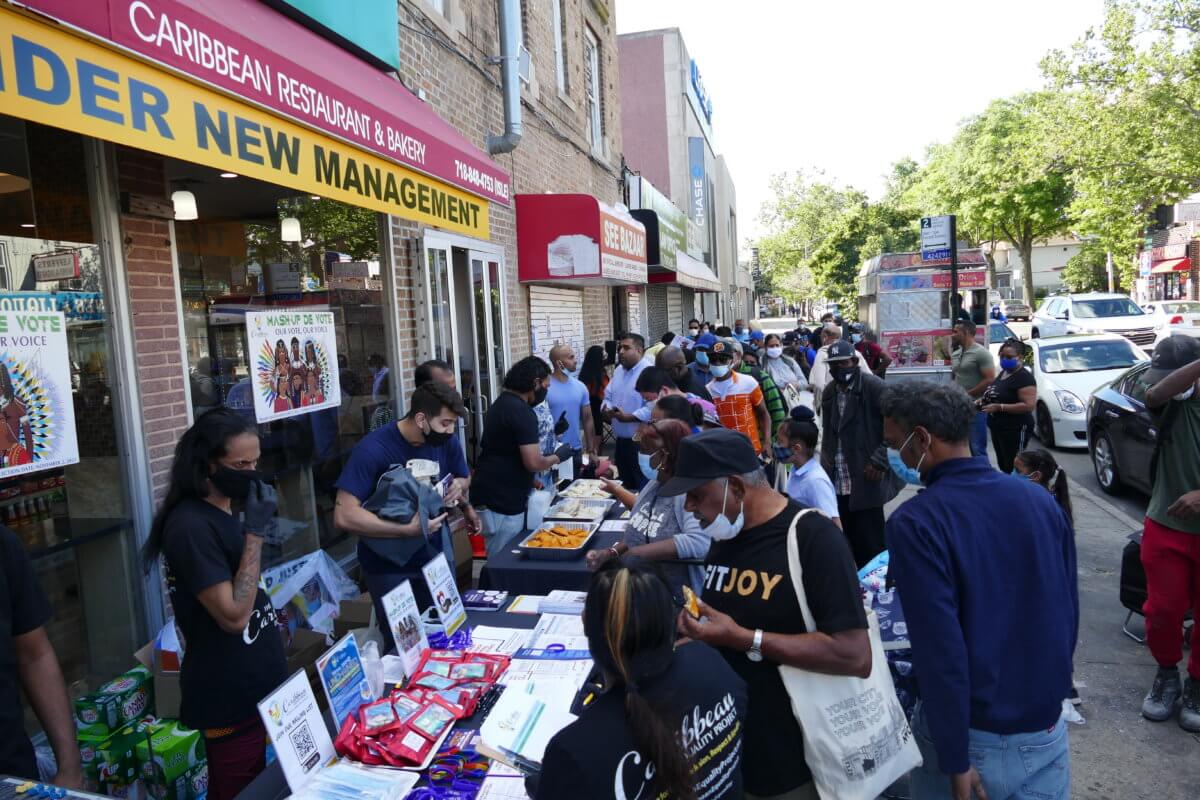
South Queens Women’s March (SQWM) co-organized “Little Guyana Votes” to help ensure that the Black, brown and largely immigrant community has all of the information it needs to build political power and elect the candidates who will champion its myriad needs, according to Aminta Kilawan-Narine, founder and director of SQWM.
“The June 22 primary election will be among one of the most important in our recent memory, with a record-high number of candidates running across the city, and voters casting their ballots in a new way through ranked-choice voting,” Kilawan-Narine said. “Political education is therefore doubly essential in this cycle.”
The city’s new ranked-choice voting system allows voters to rank each candidate in a race by preference, choosing their top five candidates on the ballot.
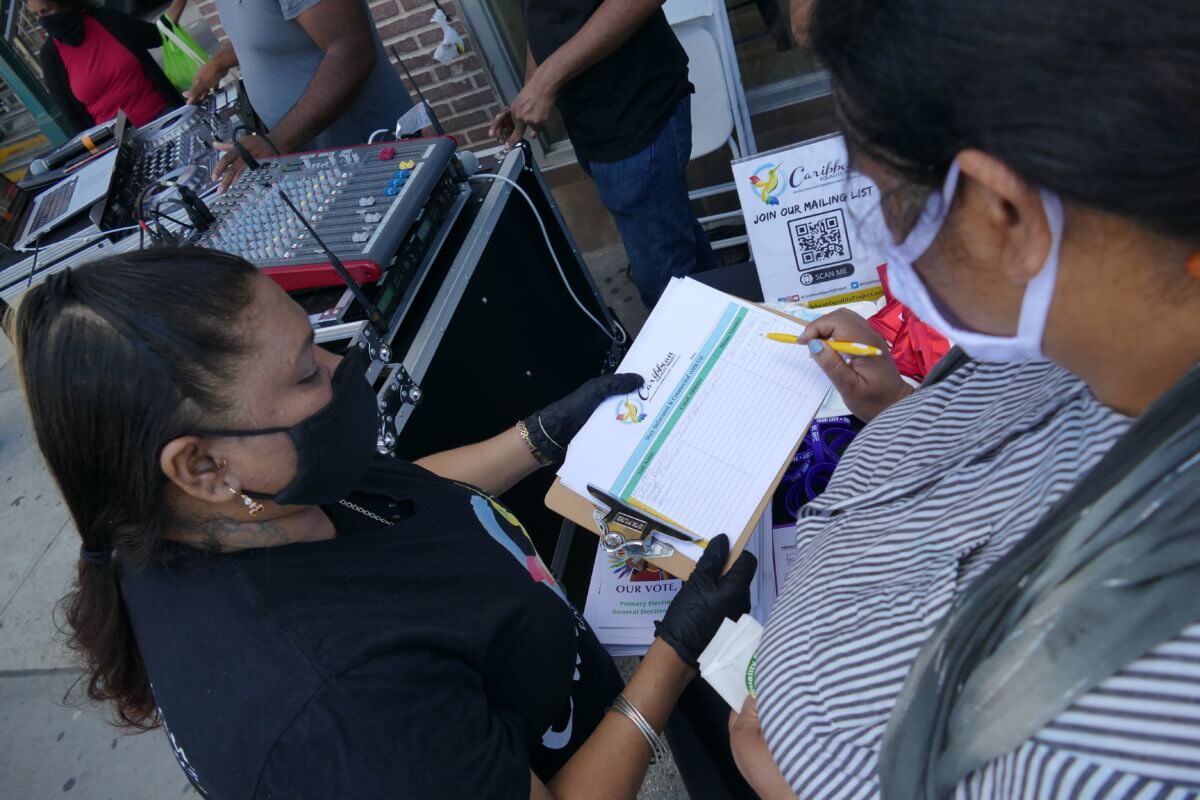
Primary elections historically have low voter turnout, yet they are almost always the deciding factor in which candidates ultimately win elected office, according to Kilawan-Narine.
“We must ensure that our communities’ voices are heard loud and clear. We are a formidable people that have been marginalized and under-resourced for too long. We must exercise our power to vote for ourselves and for those undocumented immigrants who are unable to cast a ballot,” Kilawan-Narine said.
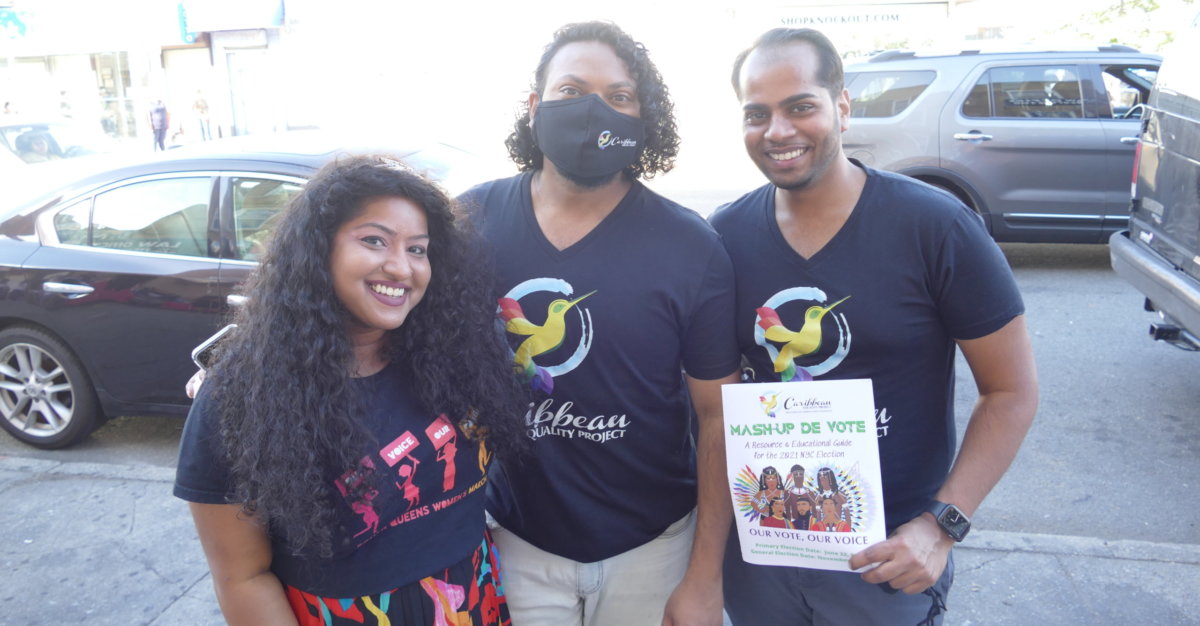
Ramdat Singh, the civic engagement director of the Caribbean Equality Project, said voting is a constitutional right that many immigrant communities have fought to earn, and voters must show up at the polls so their marginalized voices are heard.
“This is how we continue to build political power in New York City for LGBTQ+ people, Indo Caribbeans, Afro-Caribbeans, South Asians, and for undocumented community members that are ineligible to vote due to their citizenship status,” Singh said. “Little Guyana is the most under-resourced and under-funded community in Queens, and we must elect representatives who will hear us and fight for all of our voices. We are deserving of equitable funding for community-based organizations, immigration services, healthcare, employment, quality of life, and economic sustainability.”
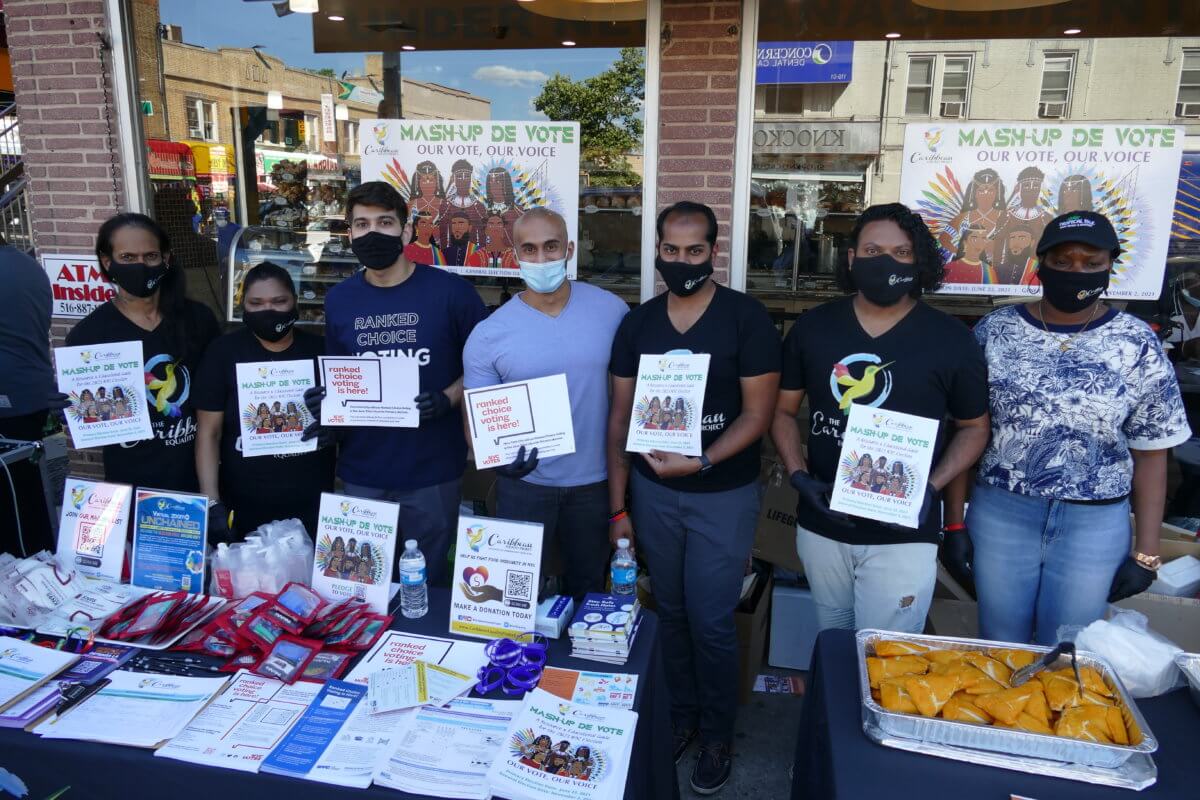
Voting in local elections is one way people can ensure their voices are heard in their communities, which is why the upcoming election is so important, said New York City’s Chief Democracy Officer Laura Wood.
“This primary election will be crucial in shaping the next four years of our city’s future and we must continue to work to ensure that every voice is heard,” Wood said.
Democracy NYC is a partner of the APA Voice, a coalition of community-based organizations that have been on the ground for months ensuring Asian American New Yorkers, specifically immigrants, are prepared for ranked-choice voting this June.
The voter outreach event was also organized in collaboration with many organizations including the Minkwon Center for Community Action, Asian American Federation, as well as several Indo-Caribbean and South Asian led southeast Queens organizations, including Sadhana: Coalition of Progressive Hindus, United Madrassi Association, Kaurageous Love, and South Asian Council for Social Services.
